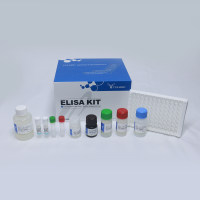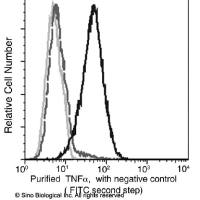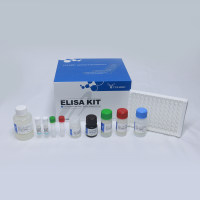Inflammation and Tumor Progression: A Lesson from TNF--Dependent FAK Signaling in Cholangiocarcinoma
互联网
互联网
相关产品推荐

促销中大鼠肿瘤坏死因子α(TNF-α)/Rat TNF-α/tumor necrosis factor (TNF superfamily,member 2)/Tnf;Tnfa;Tnfsf2;Tumor necrosis factor;Cachectin;TNF-alpha;Tumor necrosis factor ligand superfamily member 2;TNF-a) [Cleaved into: Tumor necrosis factor;membrane for/TNF/ELISA试剂盒
¥3420¥3800

Mouse PTK2/FAK1 expression plasmid,N-Flag | 小鼠 PTK2/FAK1 表达质粒,N-Flag
¥2370

WISP2/WISP2蛋白Recombinant Human WNT1-inducible-signaling pathway protein 2 (WISP2)重组蛋白CCN family member 5 Connective tissue growth factor-like protein蛋白
¥1344

TNF-alpha / TNFA / TNFSF2 Antibody, Mouse MAb | TNF-alpha / TNFA / TNFSF2 鼠单抗
¥800

促销中小鼠肿瘤坏死因子α(TNF-α)酶联免疫试剂盒Mouse Tumor necrosis factor α,TNF-α ELISA KIT
¥3420¥3800
相关问答

